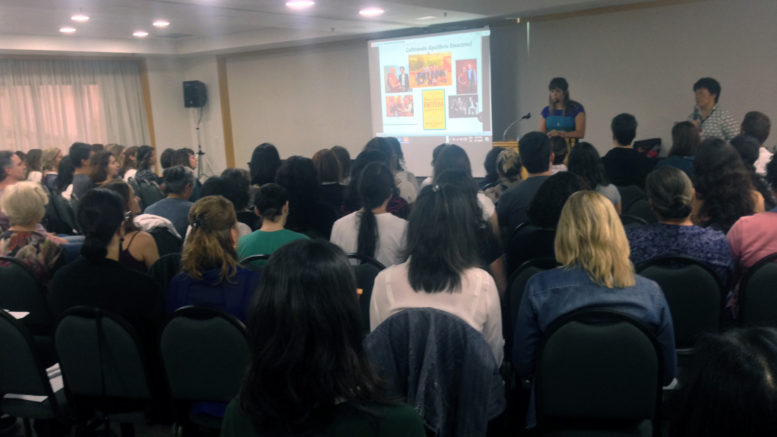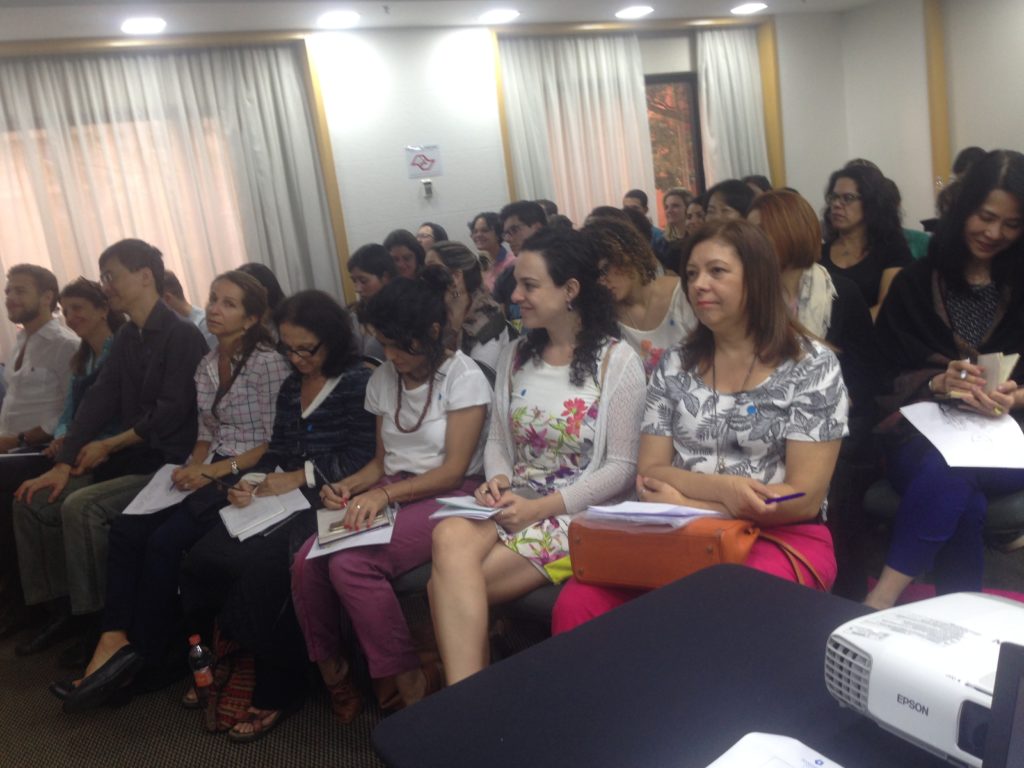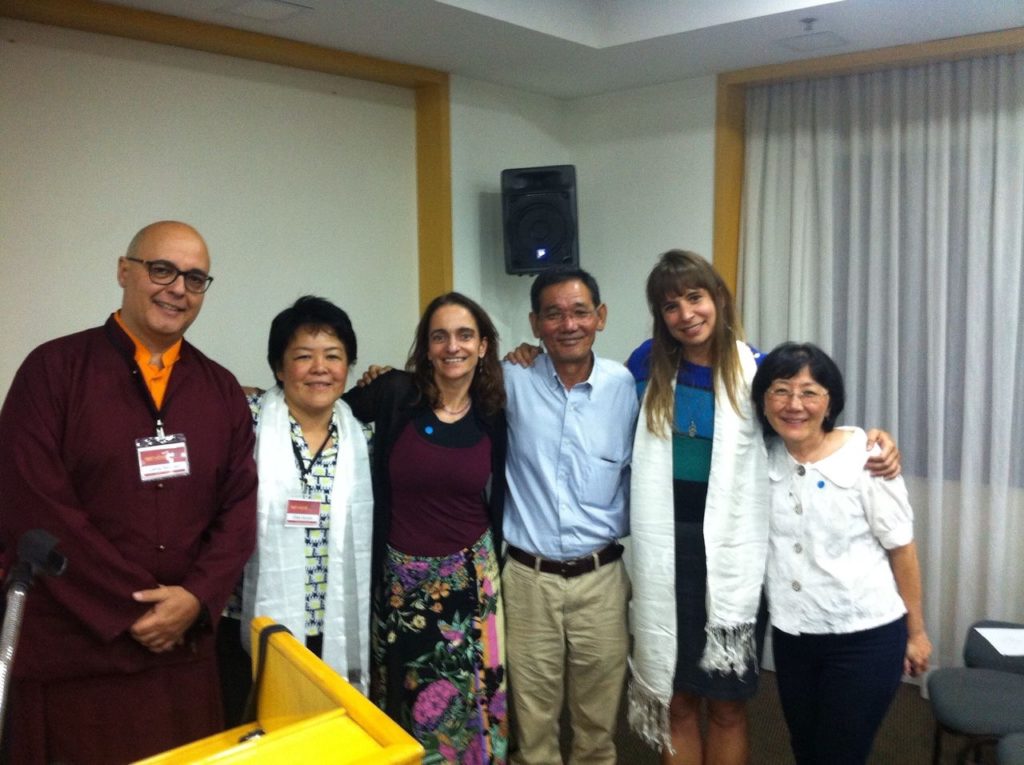Brasil: Tibet House Brasil successfully held a workshop on Cultivating Emotional Balance and Micro Facial Expressions with Dr Eva Ekman, PhD, on the afternoon of 13 May 2017 in Sao Paulo. The workshop was attended by a hundred professionals and university students. More than 40 people on the waiting list couldn’t participate in the workshop due to the limitation of space.
A world-renowned psychologist and emotion researcher, Dr Eva Ekman is a research scholar at the Osher Center for Integrative Medicine of the University of California-San Francisco. She is also one of the founding teachers of Cultivating Emotional Balance Training Center founded by her father, Paul Ekman, in San Francisco in collaboration with the Dr. Alan Wallace and her.
Cultivating Emotional Balance is a training program emerged during a Mind & Life dialogue between western scientists and the Dalai Lama on “Destructive Emotions” held in Dharamsala in 2000. During the fourth day of the dialogue, His Holiness asked the scientists if this was just going to be a talk, or whether something was going to happen to improve the emotional lives of people around the world. Paul Ekman took up the challenge and said he thought an innovative training program could be developed through combining Western exercises to develop more skillful emotional behavior, with Eastern meditative practices in secular setting.
The Tibet House Brasil organized the workshop as a part of small contribution towards fulfilling His Holiness’ vision of promoting secular ethics in education.
At the Tibet House workshop, Dr Eve Ekman initially gave a thorough introduction on the nature of our emotions and highlighted the importance of becoming aware of one’s emotions before it becomes destructive. She also touched on the scientific based Cultivating Emotional Balance Training.
She told the workshop participants that before trying to cultivate emotional balance, it is crucial first to cultivate attentional balance, which demands relaxation, stability and clarity. She added that Relaxation acts like the root of a tree, stability as trunk of the tree, and then clarity as brightly lit leaves of the tree.
Dr Eve Ekman emphasised that in order to cultivate emotional balance, it is important to have a clear goal to achieve it. The goal, she said, is is to achieve “Genuine Happiness”. In order to have better grasp of the genuine happiness, she defined it as: “Genuine happiness is the distinct experience of fulfillment and satisfaction based upon the quality of being that we bring into the world, rather than the pleasure that comes fro getting what we can from the world,”
Highlighting the model for mental balance, she explained that in order to achieve emotional balance, it is important to balance of attentional, conative, cognitive mind (three parts of the mind). Following this, she explained the emotional episode timeline, which includes trigger, experience and finally behavior. She added that the trigger can have three different kinds–precondition, event and perceptual database, and then the experience could be physical changes or mental changes. Finally, in terms of behavior, it could have three different responses–either constructive response or destructive response or ambiguous response.
Since the time for the workshop is short and the actual training for cultivating emotional balance requires at least 5-week course, she had to stop the presentation on cultivating emotional balance here and jumped to the Atlas of Emotions, which she and her father constructed at the advice of His Holiness the Dalai Lama. She showed a brief video clip of the conversation between her father, Paul Ekman, and His Holiness discussing the basic emotions. Just to get some ideas on micro facial expressions, she showed slides on different facial expressions of people and their significance.
Dr Eve showed a quote from His Holiness wherein he stressed: “In order to find the new world we needed a map. To find emotional awareness we need a new kind of map.”
Later before wrapping up she attended briefly on micro facial expressions. She said that when her father initially launched the research project, he was curious to know whether the facial expressions are inborn or acquired. In order to have unbias and proper study on this subject, he chose the study location at Papua New Guinea, a southwestern pacific island where people were then not exposed modern cinemas and media.
She concluded the workshop with a statement that although the study of micro facial expressions is exciting, she is more keen and interested in understanding the internal emotions and working with it. Dr Eve opened and closed the workhop with a brief guided meditation on emotional balance.
-Report filed by Office of Tibet, Brasil-



